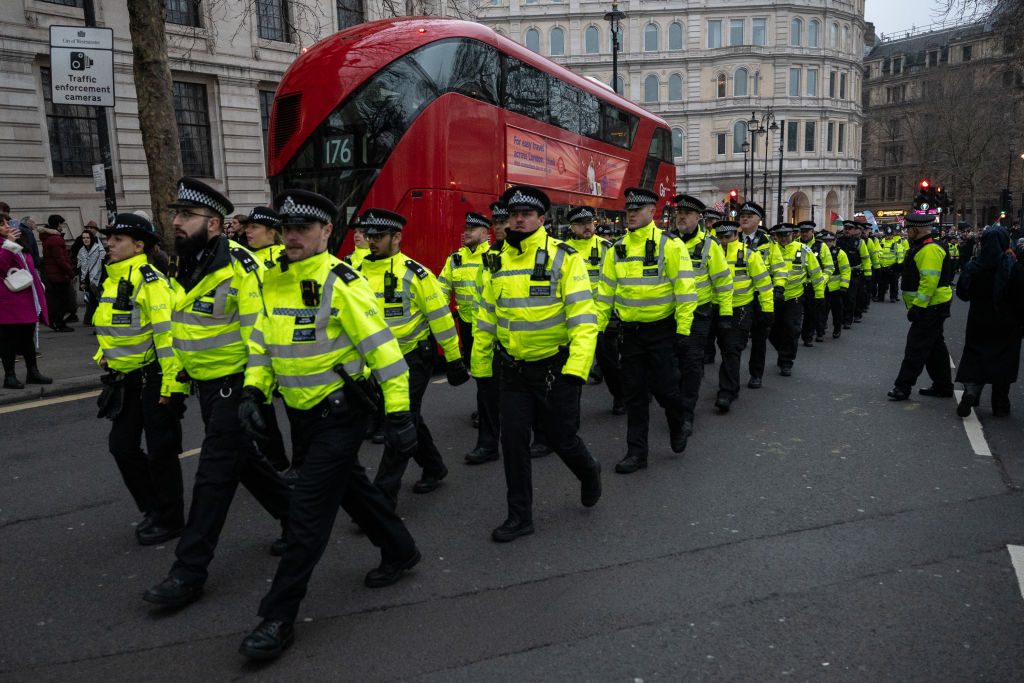Monday’s conviction of Javon Riley at the Old Bailey should serve as a wake-up call about the violence escalating through London’s Turkish criminal underworld. The 33-year-old from Tottenham was found guilty of attempted murder after helping orchestrate a shooting that left a nine-year-old girl with a bullet permanently lodged in her brain.
The child, who cannot be named, was having dinner with her family at the Evin restaurant in Hackney when a clash between rival gangs erupted on Kingsland High Street on 24 May 2024. She became an unintended victim in a feud that began with a violent brawl at a North London snooker hall in 2009, and which is now spilling into public violence that makes a mockery of Mayor Sadiq Khan’s claims of falling crime in the capital.
Riley, linked to the notorious Tottenham Turks, didn’t pull the trigger. But he was instrumental in the attack, helping the gunman escape and disposing of the weapon. Unsurprisingly, he has refused to snitch on his associates. The shooter remains at large, with police offering a £15,000 reward for information.
To understand how we reached this point, it’s worth noting how Turkish crime networks first embedded themselves in Britain. After the 1974 Cyprus war, thousands of Turkish Cypriots fled to the UK and quickly snapped up cash businesses, such as chip shops, cafes, restaurants.
“Within 10 years they’d bought up half of Peckham, Croydon, the East End,” recalls Yusuf*, a source who knows the community — and its organised crime groups — through his family’s own involvement. Cash businesses became both the backbone of Turkish immigrant life and a convenient cover for criminal activity, especially drug trafficking, due to Turkey’s proximity to heroin and cannabis production. Social clubs and cafés turned into discreet hubs where traffickers, dealers and enforcers mingled out of public view.
As Yusuf puts it: “Turks love a pound note. They’ll sell their mum for a pound.” Entrepreneurial drive, when channelled into illicit trades masquerading as legitimate business, created networks far more sophisticated than the police were prepared for.
Like Italian, Maltese, and East End gangsters before them, the capital’s Turkish villains have always had a certain cachet. At their zenith in the Eighties and Nineties, Bermondsey’s Arif crime family operated like the Ottoman Empire of London’s underworld — reputedly moving from armed robbery and extortion into drug trafficking and contract killing. But following a series of high-profile busts, the Arifs’ decline and fall cast the Turkish mob as Britain’s forgotten mafia — until now.
The recent bloodshed among North London’s warring Turkish groups has been fuelled by global shocks. Turkish gangs long dominated much of the heroin entering Britain, but when the Taliban banned opium cultivation in Afghanistan in 2022, supply collapsed. Scarcity drove up profits, and intensified rivalries.
This violence has spilled abroad. Last summer, senior Tottenham Turk leader İzzet Eren was shot dead in a Moldovan café, a professional hit in an otherwise quiet country. This week, a judge even ruled that a former lawyer could be extradited to Moldova to be tried for plotting the murder of Eren.
In the UK, London remains the epicentre, but Turkish gangs have expanded their reach. Recent National Crime Agency raids on barber shops in Birmingham, Luton, Bradford, and Manchester uncovered money-laundering operations. Many outlets assumed to be Turkish fronts are, in fact, Kurdish.
And the ethnic map of Britain’s drug economy is shifting. Albanians have moved aggressively into the market, carving out territory in South East London, Essex and surrounding counties, even spinning off their own grime scene in collaboration with black gangs. Pakistani networks — quieter and less visible — remain deeply embedded in heroin. What emerges is a patchwork of overlapping ethnic fiefdoms, with alliances and rivalries that cut across familiar lines.
Javon Riley, who is of Afro-Caribbean descent, is just the latest example of Turkish gangsters recruiting outside their community to carry out their dirty work. This recruitment strategy gives Turkish gangs — and other ethno- and white criminal groups — extra muscle, dissociative deniability and, indeed, clout.
Thanks to prevailing racist stereotypes, black males carry a fear factor that has value in criminal circles. This troubling trend dates back at least to the Fifties, when West Indian heavies were employed by slum landlords including Peter Rachman. It continued through the Eighties with black bouncers and minders, and today’s “mandem” hitmen — often teenagers, groomed from within London’s black organised crime groups — resemble bands of urban child soldiers.
Riley’s conviction may feel like an achievement to some. But with the gunman still at large and the UK’s £9.4 billion drug trade expanding, it is a drop in the ocean. As one senior officer told me, “If we can’t stop boatloads of people entering the country every day, how are we supposed to stop firearms, drugs and other contraband from winding up on our streets?” Welcome to the dark side of multiculturalism, immigration, and cross-border “trade”.
*Some names have been changed











Join the discussion
Join like minded readers that support our journalism by becoming a paid subscriber
To join the discussion in the comments, become a paid subscriber.
Join like minded readers that support our journalism, read unlimited articles and enjoy other subscriber-only benefits.
Subscribe